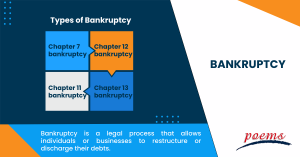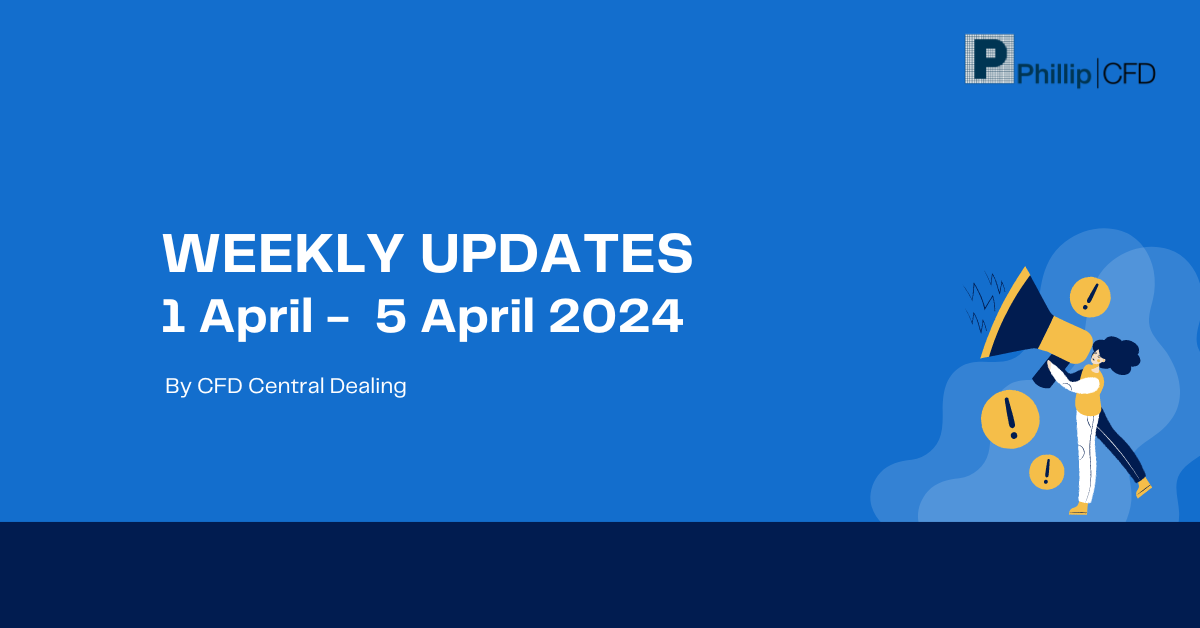Bankruptcy
Table of Contents
Bankruptcy
Through the liquidation of assets or the creation of a repayment plan, bankruptcy enables those who are unable to pay their obligations to start again. Bankruptcy rules likewise protect financially precarious companies. The bankruptcy procedure and legislation are described in this section.
Bankruptcy can affect investors by limiting their ability to access capital. If you have filed for bankruptcy, you may not be able to get a loan from a bank or any other financial institution. This can make it difficult to get the funding you need to grow your business.
What is bankruptcy?
Bankruptcy is a legal process that allows individuals or businesses to restructure or discharge their debts. In most cases, bankruptcy is filed when an individual or business cannot repay their debts.
When an individual or business files for bankruptcy, they are protected from creditors, and their assets are liquidated to repay their debts. There are different types of bankruptcy, but the most common are Chapter 7 and Chapter 13.
Types of bankruptcy

There are four types of bankruptcy.
- Chapter 7 bankruptcy
It is also known as liquidation bankruptcy. In a Chapter 7 bankruptcy, the company’s assets are sold off, and the proceeds are used to pay creditors. Any remaining debt is discharged.
- Chapter 11 bankruptcy
It is also known as a reorganization bankruptcy. In a Chapter 11 bankruptcy, the company reorganizes its debts and assets. The company may be able to keep some of its assets and pay off creditors over time.
- Chapter 12 bankruptcy
It is for family farmers and fishermen. In a Chapter 12 bankruptcy, the farmer or fisherman reorganizes their debts and assets. The farmer or fisherman may be able to keep some of their assets and pay off creditors over time.
- Chapter 13 bankruptcy
It is also known as the wage earner’s plan. In a Chapter 13 bankruptcy, the debtor reorganizes their debts and assets. The debtor may be able to keep some of their assets and pay off creditors over time.
Advantages and disadvantages of bankruptcy
There are both advantages and disadvantages to filing for bankruptcy.
Some of the advantages include the following:
- You can discharge your debts, which can give you a fresh start financially.
- Additionally, filing for bankruptcy can stop creditors from harassing you and can give you some protection from foreclosure.
However, there are also some disadvantages to filing for bankruptcy, such as:
- It will stay on your credit report for up to 10 years. Additionally, it can be difficult to obtain new credit after filing for bankruptcy.
- With the damage to your credit, it will be difficult to get loans in the future and make it difficult to get the best terms on loans. This can make it difficult to grow your business in the future.
Alternatives to bankruptcy
Several alternatives to bankruptcy can be considered when faced with financial difficulties. These include debt consolidation, debt negotiation, and debt settlement.
Each option has advantages and disadvantages, and it is important to consider all factors before deciding. In some cases, bankruptcy may be the best option, but in others, one of the alternatives may be more advantageous.
Speaking with a financial advisor or attorney is important to get more information and learn about all possible options.
How to recover from bankruptcy?
Bankruptcy can be difficult and stressful, but there are ways to recover and move on from it. The first step is understanding bankruptcy and how it will affect you. You should also seek professional help to assess your financial situation and create a plan for moving forward.
Once you have a clear understanding of your situation, you can begin to work on rebuilding your credit and finances. This may include paying off debts, maintaining a budget, and saving money. You can also look into options for debt relief or restructuring.
It may take some time to recover from bankruptcy, but with patience and effort, it is possible to get back on track. You can rebuild your credit and create a bright future by improving your financial situation.
Frequently Asked Questions
There are several negative consequences of declaring bankruptcy.
- First, it will damage your credit score for years to come. This can make it difficult to get a loan, a mortgage, or a job.
- Second, you may have to give up some possessions, including your home or car.
- Third, you will have to pay high-interest rates on any future loans you take out.
- Finally, bankruptcy can be a very stressful and emotionally difficult process.
There is no easy answer when it comes to the question of whether bankruptcy is a good choice.
On the one hand, bankruptcy can provide much-needed relief from overwhelming debt. It can give you a fresh start, allowing you to rebuild your financial life. On the other hand, bankruptcy can be a long and difficult process, and it can seriously impact your credit and your ability to obtain new credit in the future.
The decision to file for bankruptcy should be made after careful consideration and consultation with a qualified bankruptcy attorney.
There are four types of corporate bankruptcy: Chapter 7, Chapter 11, Chapter 12, and Chapter 13.
Bankruptcy affects investors in a few different ways. It can limit your ability to invest in the future. If you have filed for bankruptcy, you may not be able to get a loan to invest in a new business venture. This can make it difficult to start over after bankruptcy.
Bankruptcy can significantly impact your ability to invest in the future. Understanding how it can affect you before filing for bankruptcy is important.
Bankruptcy is a legal process that allows a person or business to reorganize or liquidate its assets to pay off creditors. It is the last resort option for people unable to pay their debts, which can have serious consequences.
Bankruptcy can stay on your credit report for up to 10 years, making it difficult to get credit, buy a home, or get a job. It can also be expensive and time-consuming. You may have to give up some of your assets, and you may have to pay taxes on the forgiven debt.
Bankruptcy should only be considered as a last-resort option. If you are considering bankruptcy, you should speak to a bankruptcy lawyer to discuss your options and the consequences.
Related Terms
- Trailing Stops
- Exchange Control
- Relevant Cost
- Dow Theory
- Hyperdeflation
- Hope Credit
- Futures contracts
- Human capital
- Subrogation
- Qualifying Annuity
- Strategic Alliance
- Probate Court
- Procurement
- Holding company
- Harmonic mean
- Trailing Stops
- Exchange Control
- Relevant Cost
- Dow Theory
- Hyperdeflation
- Hope Credit
- Futures contracts
- Human capital
- Subrogation
- Qualifying Annuity
- Strategic Alliance
- Probate Court
- Procurement
- Holding company
- Harmonic mean
- Income protection insurance
- Recession
- Savings Ratios
- Pump and dump
- Total Debt Servicing Ratio
- Debt to Asset Ratio
- Liquid Assets to Net Worth Ratio
- Liquidity Ratio
- Personal financial ratios
- T-bills
- Payroll deduction plan
- Operating expenses
- Demand elasticity
- Deferred compensation
- Conflict theory
- Acid-test ratio
- Withholding Tax
- Benchmark index
- Double Taxation Relief
- Debtor Risk
- Securitization
- Yield on Distribution
- Currency Swap
- Overcollateralization
- Efficient Frontier
- Listing Rules
- Green Shoe Options
- Accrued Interest
- Market Order
- Accrued Expenses
- Target Leverage Ratio
- Acceptance Credit
- Balloon Interest
- Abridged Prospectus
- Data Tagging
- Perpetuity
- Hybrid annuity
- Investor fallout
- Intermediated market
- Information-less trades
- Back Months
- Adjusted Futures Price
- Expected maturity date
- Excess spread
- Quantitative tightening
- Accreted Value
- Equity Clawback
- Soft Dollar Broker
- Stagnation
- Replenishment
- Decoupling
- Holding period
- Regression analysis
- Wealth manager
- Financial plan
- Adequacy of coverage
- Actual market
- Credit risk
- Insurance
- Financial independence
- Annual report
- Financial management
- Ageing schedule
- Global indices
- Folio number
- Accrual basis
- Liquidity risk
- Quick Ratio
- Unearned Income
- Sustainability
- Value at Risk
- Vertical Financial Analysis
- Residual maturity
- Operating Margin
- Trust deed
- Leverage
- Profit and Loss Statement
- Junior Market
- Affinity fraud
- Base currency
- Working capital
- Individual Savings Account
- Redemption yield
- Net profit margin
- Fringe benefits
- Fiscal policy
- Escrow
- Externality
- Multi-level marketing
- Joint tenancy
- Liquidity coverage ratio
- Hurdle rate
- Kiddie tax
- Giffen Goods
- Keynesian economics
- EBITA
- Risk Tolerance
- Disbursement
- Bayes’ Theorem
- Amalgamation
- Adverse selection
- Contribution Margin
- Accounting Equation
- Value chain
- Gross Income
- Net present value
- Liability
- Leverage ratio
- Inventory turnover
- Gross margin
- Collateral
- Being Bearish
- Being Bullish
- Commodity
- Exchange rate
- Basis point
- Inception date
- Riskometer
- Trigger Option
- Zeta model
- Racketeering
- Market Indexes
- Short Selling
- Quartile rank
- Defeasance
- Cut-off-time
- Business-to-Consumer
- Acquisition
- Turnover Ratio
- Indexation
- Fiduciary responsibility
- Benchmark
- Pegging
- Illiquidity
- Backwardation
- Backup Withholding
- Buyout
- Beneficial owner
- Contingent deferred sales charge
- Exchange privilege
- Asset allocation
- Maturity distribution
- Letter of Intent
- Emerging Markets
- Consensus Estimate
- Cash Settlement
- Cash Flow
- Capital Lease Obligations
- Book-to-Bill-Ratio
- Capital Gains or Losses
- Balance Sheet
- Capital Lease
Most Popular Terms
Other Terms
- Physical ETF
- Initial Public Offering
- Buyback
- Secondary Sharing
- Bookrunner
- Notional amount
- Negative convexity
- Jumbo pools
- Inverse floater
- Forward Swap
- Underwriting risk
- Reinvestment risk
- Final Maturity Date
- Payment Date
- Secondary Market
- Margin Requirement
- Mark-to-market
- Pledged Asset
- Yield Pickup
- Subordinated Debt
- Treasury Stock Method
- Stochastic Oscillator
- Bullet Bonds
- Basket Trade
- Contrarian Strategy
- Notional Value
- Speculation
- Stub
- Trading Volume
- Going Long
- Pink sheet stocks
- Rand cost averaging
- Sustainable investment
- Stop-limit sell order
- Economic Bubble
- Ask Price
- Constant prepayment rate
- Covenants
- Stock symbol
- Companion tranche
- Synthetic replication
- Bourse
- Beneficiary
- Witching Hour
- Widow and Orphan stock
- Public Float
- Closing Price
- Reverse stock splits
- Quiet period
- Prepayment risk
Know More about
Tools/Educational Resources
Markets Offered by POEMS
Read the Latest Market Journal

Back in Business: The Return of IPOs & Top Traded Counters in March 2024
Start trading on POEMS! Open a free account here! At a glance: Major indices continue...

Weekly Updates 15/4/24 – 19/4/24
This weekly update is designed to help you stay informed and relate economic and company...

From $50 to $100: Unveiling the Impact of Inflation
In recent years, inflation has become a hot topic, evoking strong emotions as the cost...

Japan’s Economic Resurgence: Unveiling the Tailwinds Behind Nikkei 225’s Record Leap
Source: eSignal, Intercontinental Exchange, Inc. In the heart of Japan’s economic landscape, the Nikkei 225...

Weekly Updates 8/4/24 – 12/4/24
This weekly update is designed to help you stay informed and relate economic and...

What Makes Forex Trading Attractive?
In a world where the click of a button can send goods across oceans and...

Weekly Updates 1/4/24 – 5/4/24
This weekly update is designed to help you stay informed and relate economic and company...

How to soar higher with Positive Carry!
As US Fed interest rates are predicted to rise 6 times this year, it’s best...












